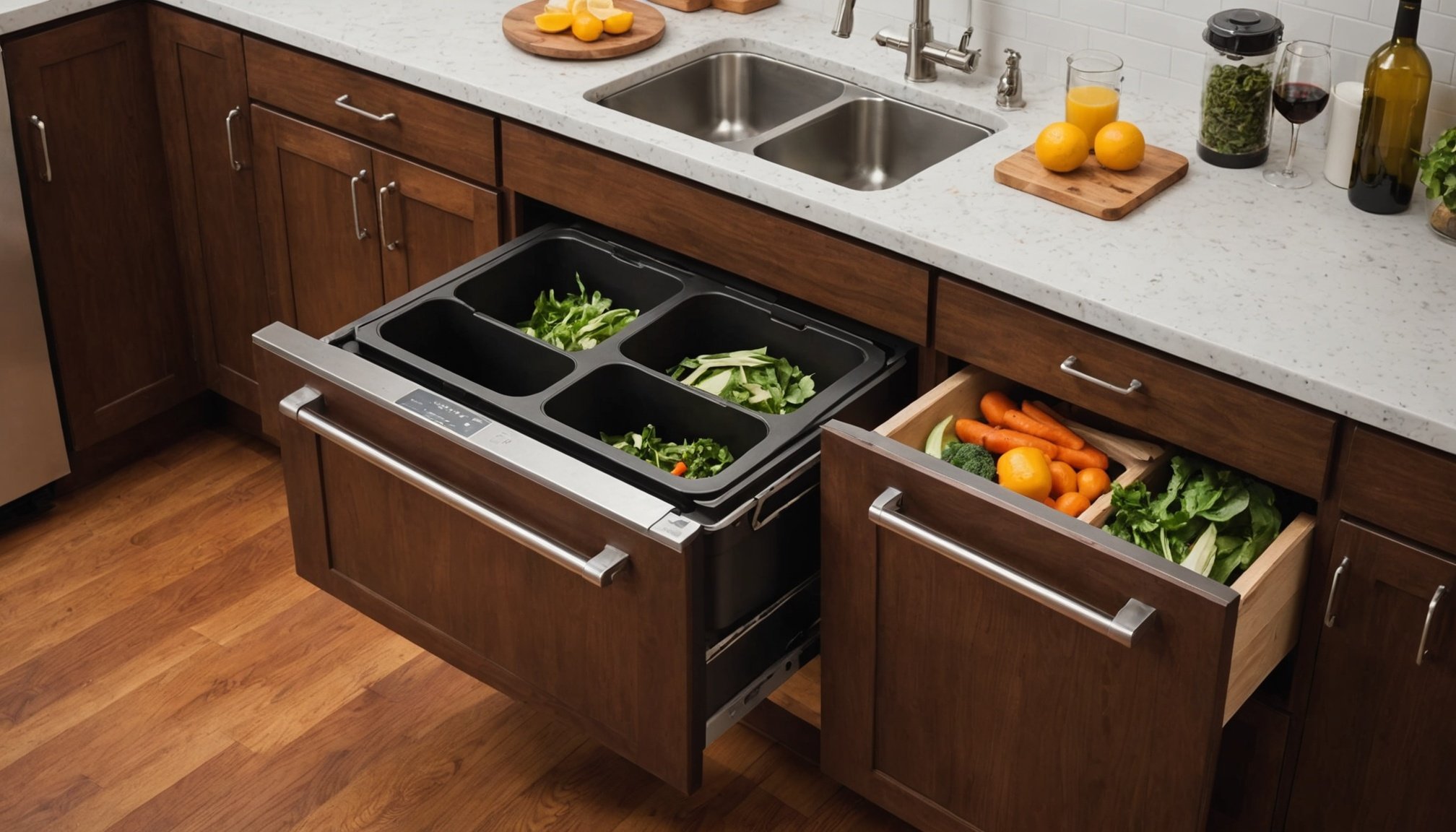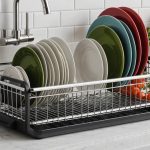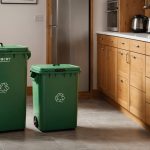Understanding Built-In Composting Units
Built-in composting units represent an innovative step in kitchen design, seamlessly integrating sustainability into the heart of the home. These units are compact systems installed directly into cabinetry, allowing for direct waste deposit through a counter opening. This convenience encourages regular composting by removing the barriers of outdoor bins or lengthy disposal processes.
The benefits of integrating a composting unit into kitchen design extend beyond mere convenience. Firstly, these units play a crucial role in reducing household waste sent to landfills, significantly decreasing methane emissions. They promote an eco-friendly lifestyle, contributing positively to the environment by recycling kitchen scraps into nutrient-rich compost. This process enriches garden soils without the need for chemical fertilizers.
In the same genre : Illuminate your kitchen: uncover top lighting ideas to create a cozy and motivating culinary haven
From an aesthetic and functional perspective, built-in composting solutions elevate kitchen sustainability, offering users a sleek, out-of-sight method of waste management. This integration aligns with modern trends towards eco-conscious living, appealing both to green enthusiasts and homeowners looking to reduce their carbon footprint. By combining sustainable kitchen solutions with everyday usability, built-in composting units make composting a seamless part of daily life while supporting global sustainability efforts.
Installation Guide for Built-In Composting Units
Exploring composting unit installation opens new avenues for transforming your kitchen into an eco-friendly hub. Understanding proper installation can make this sustainable endeavor both feasible and rewarding.
Also read : Optimize Your Culinary Space: Finding the Perfect Counter Height for Cooking Ease and Weight Management
Preparing Your Kitchen for Installation
Preparing your kitchen involves several steps crucial for a seamless transition. First, assess your kitchen’s layout, identifying a prime location for the composting unit; ideally under a counter close to primary waste sources. This placement maximizes convenience and functionality. A toolkit including drills, saws, safety goggles, and measuring tape is indispensable for precision and safety during installation. Ensuring all necessary tools are ready before initiation minimizes interruptions. Essential safety precautions include turning off power and water supply if needed and wearing appropriate safety gear to prevent accidents.
Step-by-Step Installation Process
Begin with comprehensive instructions for incorporating the unit into your kitchen system. Typically, this includes adjustments to plumbing and electrical setups. Essential tips include verifying all seals to prevent leaks and ensuring electrical connections comply with safety standards. Post-installation requires routine inspection to maintain efficiency and functionality, ensuring the unit operates optimally.
Cost Analysis of Installing a Built-In Composting Unit
Costs encompass purchasing the unit, potential cabinet modifications, and professional services if necessary, contrasting with traditional methods like outdoor bins. Over time, enjoy savings through reduced waste disposal costs and closet replacement needs, enhancing kitchen renovation value.
Tips for Effective Food Waste Reduction
Food waste reduction plays a crucial role in achieving kitchen sustainability. Implementing strategic steps can dramatically minimise waste while enhancing your kitchen’s eco-friendliness. Begin by planning meals to prevent surplus, and regularly rotate pantry and fridge items to use older products first.
To maximise the benefits of built-in composting units, ensure you routinely clean and maintain the unit for optimal performance. Regular check-ups can prevent blockages while extending its lifespan. Additionally, always separate waste types to streamline the composting process and maintain efficiency.
Beyond composting, explore creative ways to repurpose food scraps. Vegetable peels can enhance broths, while citrus rinds work wonders as natural cleaners. Utilising scraps innovatively magnifies the impact of your efforts towards a more sustainable household.
Incorporating these practices not only benefits the environment but also translates into cost savings over time due to reduced purchases and waste disposal needs. Food waste reduction thus becomes a straightforward yet impactful component of one’s lifestyle, harmonising with the ethos of sustainability and eco-conscious living. Through strategic waste management and thoughtful kitchen habits, achieving food efficiency becomes both practical and rewarding.
Real-Life Testimonials and Case Studies
Exploring composting success stories and user experiences provides invaluable insights into the advantages of integrating built-in composting units in everyday kitchens. Homeowners who have embraced this sustainable innovation often share compelling stories of waste reduction and lifestyle enhancement.
Success Stories from Homeowners
Numerous testimonials highlight the transformative impact of built-in composting units on sustainable living. For instance, one homeowner noted a significant decrease in household waste, with scraps being quickly converted into compost for garden use. This not only minimized landfill contributions but also enriched their garden ecology, achieving a beautiful balance akin to a natural ecosystem.
The seamless integration and efficiency of these units often go beyond mere waste transformation. Users frequently report enhanced kitchen efficiency and daily convenience, finding joy in contributing positively to the environment while maintaining a pristine kitchen space.
Expert Opinions on Sustainable Practices
Experts in eco-friendly home improvements underscore the practicality of built-in composting units compared to traditional methods. They recommend combining these units with other sustainable practices, like energy-efficient appliances, to maximize kitchen sustainability outcomes. Interviewed specialists consistently praise the dual benefits of reduced waste management costs and strengthened eco-friendly habits. This positions built-in composting units as leading solutions in creating an environmentally conscious and functional kitchen.








